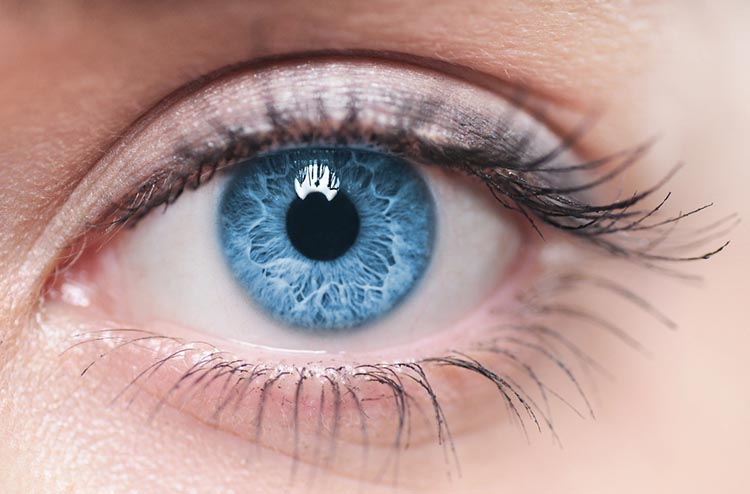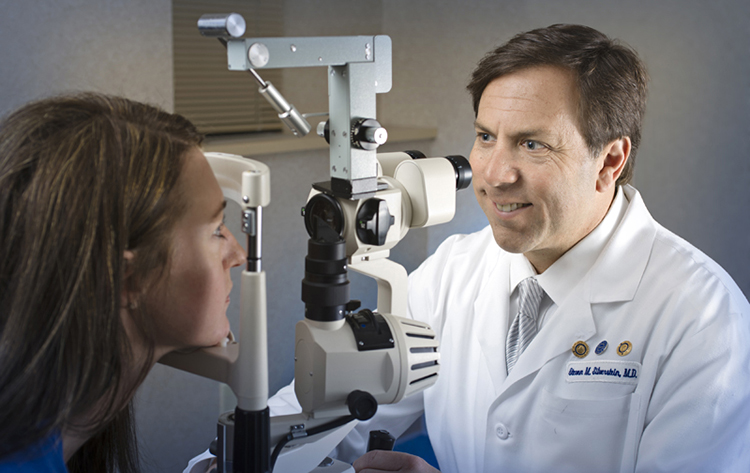Eye drops
Dry eye is one such threat. You may be noticing that your eyes feel itchy, irritated or “gritty,” while also having trouble with light sensitivity and occasional blurred vision. These are signs that your eyes aren’t producing an adequate, balanced layer of tear film to lubricate and protect themselves. Aging is a leading factor in dry eye, which can lead to corneal problems if left untreated. Ask your eye doctor to evaluate your tear production and recommend the correct eye drops/remedies.

Monitor your general health
Managing age-related health problems is critical for preventative eye care. Seniors are at greater risk for systemic challenges such as type 2 diabetes and high blood pressure — both of which can contribute to irreversible, age-related eye diseases. Diabetes can produce a form of retinal destruction called diabetic retinopathy, while hypertension is considered a risk factor for glaucoma. Make sure you’re receiving regular physical exams, learn how to monitor your blood sugar and blood pressure at home, and work with your family physician to get systemic health issues under control.
Protect against radiation
Protecting your eyes against harmful radiation is always important — but once you’re middle-aged or older this practice becomes more critical than ever. Ultraviolet rays can trigger or aggravate the formation of cataracts, which usually make their first appearance around this time of life. Ensure your sunglasses are rated “UV 400” for maximum protection and wear them whenever you go outside. If you spend lots of time on the computer, look into getting glasses that filter out high energy visible (HEV) light, a suspected factor in age-related macular degeneration.
Stay active
Staying physically active as you age can aid more than just your joints and your attitude. Your eyes need a consistent supply of blood and oxygen to function correctly and keep their tissues healthy. Getting your blood flowing can help ward off such issues as normal-pressure glaucoma, which may be caused by poor blood supply to the optic nerves.

Eye exams
Last but not least, start marking your calendar for annual senior eye exams once you reach age 60. A comprehensive eye exam every year can catch age-related issues early enough to treat them effectively. If you want to keep seeing the world’s marvels, start by making an appointment with your favorite Kansas City eye doctors!